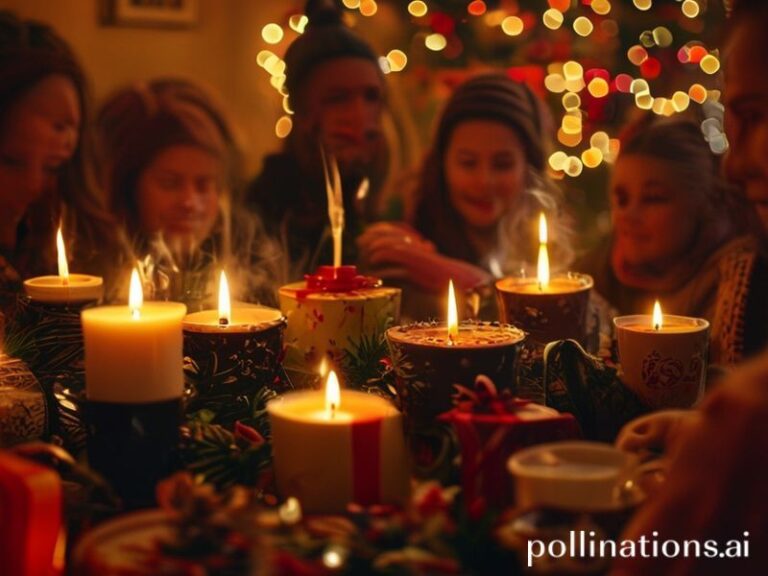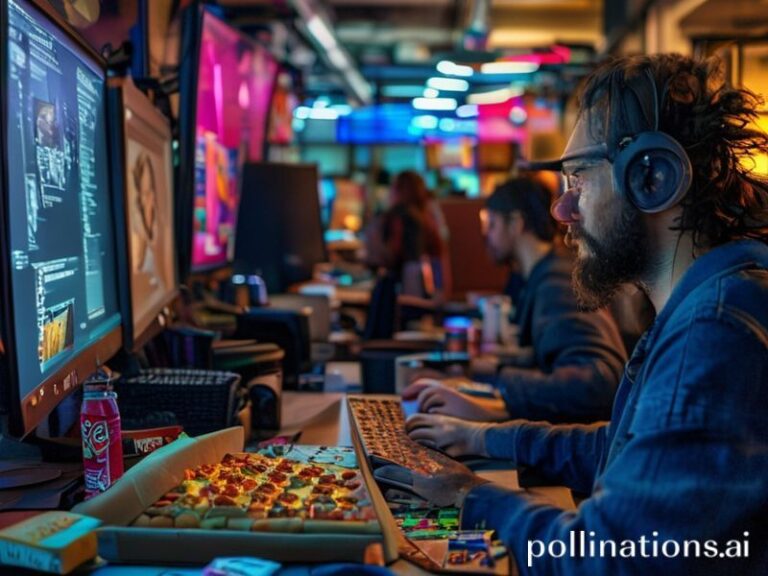Global Gridlock: How NYT Connections Became Humanity’s Favorite Daily Distraction from Collapse
**The Global Puzzle: How NYT Connections Became the World’s Favorite Daily Existential Crisis**
While wildfires consume Mediterranean islands and cryptocurrency millionaires hunt for the last ungentrified neighborhoods on Earth, humanity has found its new collective obsession: a five-by-four grid of seemingly unrelated words that must be sorted into categories. The New York Times’ Connections puzzle, that delightful morning mental gymnastics routine, has become the international community’s preferred method of procrastinating against impending doom.
On September 10, as traders in Tokyo nursed their third cup of coffee and European bureaucrats pretended to read important documents, millions stared at their screens trying to figure out why “Mercury,” “Venus,” “Mars,” and “Sulfur” belonged together. (Spoiler: they’re all elements, though good luck explaining that to someone who barely passed high school chemistry while their economy collapses around them.)
The genius of Connections lies not in its simplicity, but in its reflection of our fractured global consciousness. Here we are, citizens of a world where artificial intelligence writes poetry and billionaires race to Mars, yet we derive our daily dopamine hit from correctly identifying that “Tesla,” “Edison,” “Ford,” and “Jobs” are all inventors. It’s rather touching, actually—like watching cavemen discover fire, if the cavemen were software engineers working remotely from Lisbon and the fire was mild intellectual satisfaction.
International data reveals fascinating patterns in our collective puzzle-solving behavior. Australians, perhaps buoyed by their mandatory voting laws and resulting comfort with categorization, consistently solve puzzles faster than their American counterparts. The French, in a move that surprises absolutely no one, take their time—presumably debating whether “Champagne” belongs in the drinks category or deserves its own philosophical classification. Meanwhile, the British approach each puzzle with the grim determination of people who’ve accepted that this is as exciting as Wednesday gets in a post-Brexit economy.
The September 10 puzzle proved particularly vexing for international solvers, featuring categories that played havoc with cultural assumptions. What Americans consider standard sandwich ingredients had Europeans scratching their heads—apparently, “Hero” isn’t universally understood as a submarine sandwich when you’ve grown up in a country with actual culinary traditions. The tech category proved equally divisive, with older Europeans confidently grouping “Meta” with ancient philosophy while Silicon Valley veterans knew it was just another soul-crushing social media empire.
But perhaps the real genius of Connections is how it mirrors our global predicament. We’re all staring at the same grid of chaos, desperately trying to find patterns where none exist, convinced that with enough mental effort, we can make sense of a world where nothing connects quite like it used to. It’s democracy in action—everyone from Mumbai to Manchester equally baffled by why “Spring,” “Summer,” “Fall,” and “Network” might share a category. (Season premieres, for those still grinding their teeth.)
As climate change accelerates, democracies teeter, and the concept of truth becomes increasingly negotiable, we’ve collectively decided that the most productive use of our limited time on this dying planet is to figure out word associations before our morning coffee. It’s either the height of human absurdity or a touching testament to our eternal optimism—probably both, which is exactly the kind of connection that would fit perfectly in tomorrow’s puzzle.
In the end, we solve these puzzles for the same reason we do anything: to feel slightly less powerless in a world spinning increasingly off its axis. At least when we fail to guess that “Tender,” “Soft,” “Gentle,” and “Mild” are all synonyms, the only thing at stake is our pride, not the future of civilization. Though frankly, some days that feels like more than enough.







